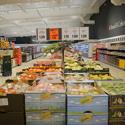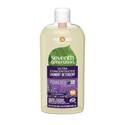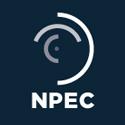Highlights
Multinational Corporations Support Campaign To Reduce Ocean Plastic Pollution
 Multinational corporations, including Coca-Cola and Walmart, pledged their support for the Ocean Plastics Charter signed by Britain, Canada, France, Germany, and Italy in June 2018. Despite an abstention by the two other G7 nations, United States and Japan, several non-G7 nations supported the plan to achieve 100 percent plastics recyclability by 2030. An announcement by Canadian Environment Minister Catherine McKena to create a new partnership with businesses to reduce plastic waste secured support from several companies, including Loblaws, Walmart, and IKEA, and Nestle Canada. Separately, Unilever announced the launch of a not-for-profit venture to reduce consumer and business waste.[Image Credit: © kakuko from pixabay]
Multinational corporations, including Coca-Cola and Walmart, pledged their support for the Ocean Plastics Charter signed by Britain, Canada, France, Germany, and Italy in June 2018. Despite an abstention by the two other G7 nations, United States and Japan, several non-G7 nations supported the plan to achieve 100 percent plastics recyclability by 2030. An announcement by Canadian Environment Minister Catherine McKena to create a new partnership with businesses to reduce plastic waste secured support from several companies, including Loblaws, Walmart, and IKEA, and Nestle Canada. Separately, Unilever announced the launch of a not-for-profit venture to reduce consumer and business waste.[Image Credit: © kakuko from pixabay]
Lidl In Ireland And Northern Ireland Is Eradicating Its Use Of Black Plastic

Lidl announced it is eliminating black plastic in packaging before Christmas from its fruit and vegetables in all of its stores in Ireland and Northern Ireland. It will be withdrawn from fresh fish products by February next year, and its poultry and fresh and cured meat products will follow by August. Lidl also announced that it had stopped selling single-use plastic items, such as straws, plastic plates, cups and cutlery. They will be replaced by biodegradable items. The retailer added that it continues to test unpackaged fruit and vegetables. Over a quarter of its fresh produce has no packaging. [Image Credit: © Lidl UK GmbH]
Seventh Generation Introduces ‘Game-Changing’ Innovation In Laundry Detergent Packaging

Unilever’s Seventh Generation detergent brand has launched what it claims is a game-changer. The 23oz bottle contains 100 per cent recycled PET and uses 60 per cent less plastic and 50 per cent less water than a typical 100oz bottle, for the same number of laundry loads. The product also features EasyDose™, a new automatic dosing technology in the cap. The EasyDose™ Ultraconcentrated Laundry Detergent was launched as an online exclusive. [Image Credit: © Seventh Generation, Inc]
Global Drinks Makers Seek To Dilute EU Plastics Legislation
 Some large beverage companies are reportedly trying to limit European Union legislation on plastics reduction. A letter signed by Danone, Coca-Cola, Nestlé and PepsiCo urges EU states to postpone proposals that would force companies to ensure bottle caps can’t be detached. The EU is considering plans for tethered caps to be mandatory by 2025. The four signatories of the leaked letter counter-propose a commitment to recycle 90 per cent of plastic bottles by 2025. Some of these companies have been identified as the heaviest contributors to plastic pollution. The companies argue that tethered caps shouldn’t be compulsory unless 2021 recycling targets aren’t met, but critics say the EU’s aims aren’t difficult to achieve and the companies are just using classic delaying tactics. [Image Credit: © goranmx from Pixabay]
Some large beverage companies are reportedly trying to limit European Union legislation on plastics reduction. A letter signed by Danone, Coca-Cola, Nestlé and PepsiCo urges EU states to postpone proposals that would force companies to ensure bottle caps can’t be detached. The EU is considering plans for tethered caps to be mandatory by 2025. The four signatories of the leaked letter counter-propose a commitment to recycle 90 per cent of plastic bottles by 2025. Some of these companies have been identified as the heaviest contributors to plastic pollution. The companies argue that tethered caps shouldn’t be compulsory unless 2021 recycling targets aren’t met, but critics say the EU’s aims aren’t difficult to achieve and the companies are just using classic delaying tactics. [Image Credit: © goranmx from Pixabay]
Two Global Companies Partner To Develop Plastics Recycling Technologies
 Unilever is teaming up with Veolia, a waste management company, to develop technology to increase plastics recycling. The partnership will first focus on India and Indonesia, on collecting and recycling waste and re-using recycled material. As a founding member of the UK Plastics Pact, Unilever is also working on the Pact’s 2025 targets, such as ensuring 70 per cent of all packaging is either recycled or reprocessed, and that all packaging has 30 per cent recycled content. Veolia, in partnership with RECOUP, a plastics recycler, produced a study that found consumers might pay extra more to increase the amount of their products that contain recycled material. It also found, however, that the infrastructure required to achieve this in the UK needs to be improved considerably. [Image Credit: © tkremmel from Pixabay]
Unilever is teaming up with Veolia, a waste management company, to develop technology to increase plastics recycling. The partnership will first focus on India and Indonesia, on collecting and recycling waste and re-using recycled material. As a founding member of the UK Plastics Pact, Unilever is also working on the Pact’s 2025 targets, such as ensuring 70 per cent of all packaging is either recycled or reprocessed, and that all packaging has 30 per cent recycled content. Veolia, in partnership with RECOUP, a plastics recycler, produced a study that found consumers might pay extra more to increase the amount of their products that contain recycled material. It also found, however, that the infrastructure required to achieve this in the UK needs to be improved considerably. [Image Credit: © tkremmel from Pixabay]
PepsiCo Strengthens Its Commitment To Using Recycled Material In Packaging
 PepsiCo has pledged to use 25 per cent recycled content in plastic packaging by 2025, building on its 2016 ‘Performance with Purpose’ sustainability initiative that aims to make 100 per cent of its packaging recyclable, biodegradable or compostable by 2025. The company says that its work with partners will ensure PET beverage bottles will incorporate 33 per cent recycled PET material by 2025. In the EU, it is aiming for a 50% target. The new target also builds on its commitment to Ellen MacArthur Foundation’s New Plastic Economy initiative. PepsiCo has also announced it had entered a multi-year supply agreement with Loop Industries, Inc., which develops sustainable plastic. PepsiCo will start to use Loop™ PET plastic, which contains 100 per cent recycled material, in its product packaging by early 2020. [Image Credit: © New Plastics Economy]
PepsiCo has pledged to use 25 per cent recycled content in plastic packaging by 2025, building on its 2016 ‘Performance with Purpose’ sustainability initiative that aims to make 100 per cent of its packaging recyclable, biodegradable or compostable by 2025. The company says that its work with partners will ensure PET beverage bottles will incorporate 33 per cent recycled PET material by 2025. In the EU, it is aiming for a 50% target. The new target also builds on its commitment to Ellen MacArthur Foundation’s New Plastic Economy initiative. PepsiCo has also announced it had entered a multi-year supply agreement with Loop Industries, Inc., which develops sustainable plastic. PepsiCo will start to use Loop™ PET plastic, which contains 100 per cent recycled material, in its product packaging by early 2020. [Image Credit: © New Plastics Economy]
Global Companies Join The New Plastics Economy Global Commitment
 Nearly 300 organizations have has joined a global initiative to eliminate plastic waste. The New Plastics Economy Global Commitment signatories include recycling companies, packaging producers and retailers. It was announced at the Ellen MacArthur Foundation’s 'Our Ocean' conference in Bali, and was launched in collaboration with UN Environment. The initiative has three main aims: eradicate unnecessary plastic and move away from single-use packaging; work towards 100% reusable, recyclable or compostable plastic packaging by 2025; and to circulate plastic by increasing the volume of plastics that can be converted into new products or packaging. CPG companies that have signed up include Johnson & Johnson, SC Johnson, Danone, L’Oréal, Mars, PepsiCo, Unilever and Coca-Cola. Other signatories include Walmart, Target, Carrefour, Metro AG, Lidl, Ahold Delhaize, H&M, Amcor and Novamont. [Image Credit: © New Plastics Economy]
Nearly 300 organizations have has joined a global initiative to eliminate plastic waste. The New Plastics Economy Global Commitment signatories include recycling companies, packaging producers and retailers. It was announced at the Ellen MacArthur Foundation’s 'Our Ocean' conference in Bali, and was launched in collaboration with UN Environment. The initiative has three main aims: eradicate unnecessary plastic and move away from single-use packaging; work towards 100% reusable, recyclable or compostable plastic packaging by 2025; and to circulate plastic by increasing the volume of plastics that can be converted into new products or packaging. CPG companies that have signed up include Johnson & Johnson, SC Johnson, Danone, L’Oréal, Mars, PepsiCo, Unilever and Coca-Cola. Other signatories include Walmart, Target, Carrefour, Metro AG, Lidl, Ahold Delhaize, H&M, Amcor and Novamont. [Image Credit: © New Plastics Economy]
Coca-Cola’s Environmental Policy Leader Outlines The Company’s ‘World Without Waste’ Strategy
 Dr. Ben Jordan, senior director of environmental policy for Coca-Cola, says the company is progressing its aim to reduce its impact on the environment. Speaking at an event in Kuala Lumpur, he outlined Coca-Cola’s ‘World Without Waste’ vision, to eliminate packaging waste and address the issue of marine debris. Jordan says the company has since August 2017 had a team of over 30 globally working on the program, which comprises three pillars: Design, Collect and Partner. Coca-Cola aims to use only 100% recyclable packaging by 2025. It also aims to make sure the consumer does recycle the packaging, and stresses the need to work with partners, like bottlers and NGOs, to make sure it happens. [Image Credit: © Andrew Martin from Pixabay]
Dr. Ben Jordan, senior director of environmental policy for Coca-Cola, says the company is progressing its aim to reduce its impact on the environment. Speaking at an event in Kuala Lumpur, he outlined Coca-Cola’s ‘World Without Waste’ vision, to eliminate packaging waste and address the issue of marine debris. Jordan says the company has since August 2017 had a team of over 30 globally working on the program, which comprises three pillars: Design, Collect and Partner. Coca-Cola aims to use only 100% recyclable packaging by 2025. It also aims to make sure the consumer does recycle the packaging, and stresses the need to work with partners, like bottlers and NGOs, to make sure it happens. [Image Credit: © Andrew Martin from Pixabay]
Kellogg Plans To Back Out Of The Cookie Business
 Kellogg Company plans to sell its cookie and snack fruit businesses to concentrate on its core product lines. On the auction block will be Keebler, Famous Amos, and Mother's and Murray cookie brands along with the Stretch Island fruit snack brand. In January 2019, the company will begin to revamp its organizational structure to improve core product market share. Kellogg hopes the move will provide “top-line growth” for the company. The structural changes will include consolidation of its morning foods, snacks, and frozen food businesses – representing about 80 percent of U.S. revenue – into single product categories. The company is also: placing a new emphasis on e-commerce; reorganizing its sales teams and making changes in its supply chain.[Image Credit: © Kellogg NA Co]
Kellogg Company plans to sell its cookie and snack fruit businesses to concentrate on its core product lines. On the auction block will be Keebler, Famous Amos, and Mother's and Murray cookie brands along with the Stretch Island fruit snack brand. In January 2019, the company will begin to revamp its organizational structure to improve core product market share. Kellogg hopes the move will provide “top-line growth” for the company. The structural changes will include consolidation of its morning foods, snacks, and frozen food businesses – representing about 80 percent of U.S. revenue – into single product categories. The company is also: placing a new emphasis on e-commerce; reorganizing its sales teams and making changes in its supply chain.[Image Credit: © Kellogg NA Co]
Coca-Cola
Coca-Cola’s Top “People Officer” Dons Global Ventures Hat
Coca-Cola’s recent acquisition spree led to the creation last month of the Global Ventures group to make sure acquisitions, investments, and partnerships are connected and globally scaled. Heading up the new unit is Jennifer Mann, the company’s “chief people officer,” who has been vice-president and general manager of Coca-Cola Freestyle and chief of staff. In announcing the change, CEO James Quincey said Mann’s unit “will focus on ensuring we get the maximum value from acquisitions and investments” and will also “partner with colleagues around the world to identify and nurture the next series of fast-growing opportunities.”
Companies, Organizations
Coca-Cola Switches Emphasis From Marketing To “Growth”
Coca-Cola’s head of creative Rodolfo Echeverria has broadened the vision of the marketing department from product awareness and award-winning advertising to growth – by better satisfying consumer beverage needs. In March 2017 the company replaced the chief marketing officer position with the chief growth officer position to execute the basic strategy of becoming a “total beverage company.” The idea is to launch and acquired beverage products that consumers around the globe really want. Diversification has been a challenge, Echevarria admits, mainly because it is necessary to preserve a strong identity for each product, “an edge, a differentiating point that is relevant to the people or relates to that brand.” Meeting the challenge has benefited marketing, however, by “forcing” employees to be more curious.
Nestle
Coca-Cola Drops Out Of Competition For GlaxoSmithKline’s Nutrition Business
Nestlé India and Unilever are the only companies vying for GlaxoSmithKline’s consumer nutrition business in India now that Coca-Cola is said to have backed out of the lengthy due diligence process. Bids for GSK’s Indian nutrition business, which includes the popular Horlicks malted milk beverage, are believed to be in the $3.1-3.5 billion range. Earlier this year, GSK launched a strategic review of its nutrition business globally. The review is expected to be concluded in December.
Products & Brands
Nestlé China Doubles Pace Of New Product Launches
Nestlé China has launched several innovation projects this year, twice the number launched in 2017, tailored specifically for Chinese consumers. China’s nutrition, health, and wellness market is Nestlé’s second largest globally. The company’s innovation team is pursuing more than 100 ongoing projects that will deliver “more choices through a variety of healthy products over the next two years.” Nestlé has launched the second generation of its “AI family nutrition assistant” XiaoAi with more than 300,000 pieces of new nutrition, health and wellness interactive content, including personalized recipe recommendations, calorie calculation, and voice ordering. The company also launched its MyNutrition App, Nescafé Shop in Office, and BabyNes’ Smart Milk Powder Leveling Kettle.
Copyright 2024 Business360, Inc.


